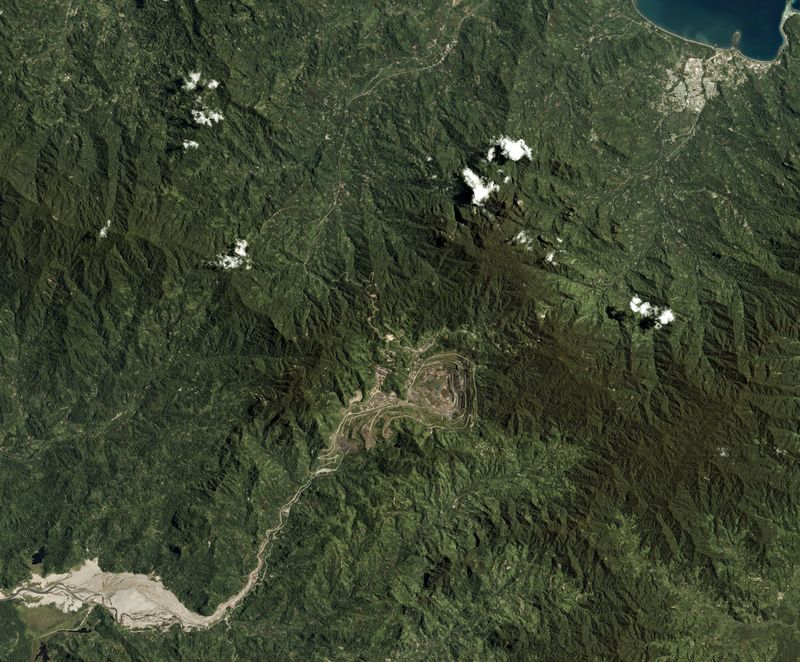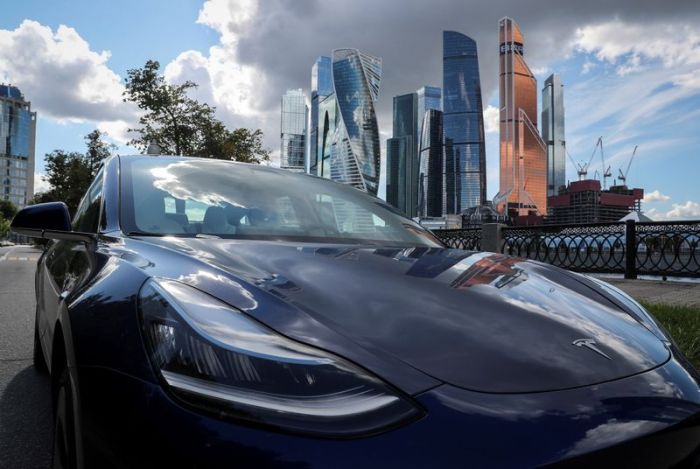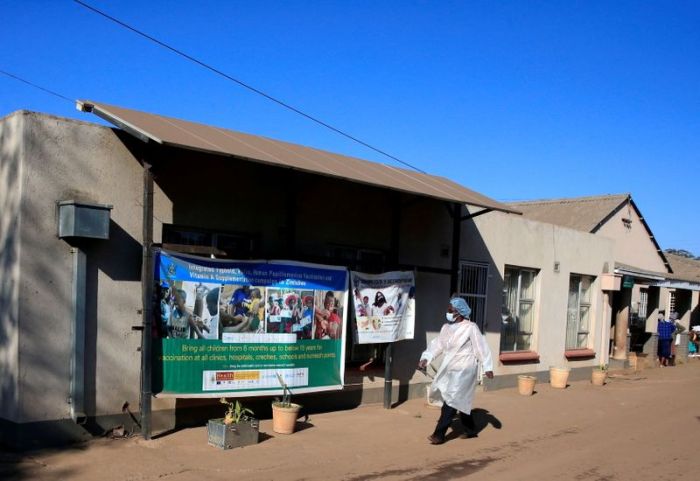MELBOURNE (Reuters) -Rio Tinto Ltd said on Wednesday it has reached an agreement with stakeholders of the Bougainville community to look into potential environmental damage and human rights breaches at a copper mine it ran decades ago.
Community and human rights groups have been pushing the miner to review issues https://www.reuters.com/article/us-mining-rio-tinto-bougainville-idUKKBN26J218 around water, land and health arising from the Panguna copper mine that Rio ran for nearly 20 years until 1989.
Rio was responding to a human rights complaint filed by a group of Bougainville residents last year who said that the massive volume of waste pollution left by the mine was having severe environmental and human rights impacts and putting the lives and livelihoods of communities at risk.
“Our people have been living with the disastrous impacts of Panguna for many years and the situation is getting worse,” traditional landowner and member of parliament Theonila Roka Matbob said in a statement.
“The mine continues to poison our rivers with copper. Our kids get sick from the pollution and communities downstream are now being flooded with mine waste … These problems need to be urgently investigated so solutions can be developed and clean-up can begin,” she said.
Around 12,000 – 14,000 people live downstream of the Panguna mine along the Jaba-Kawerong river valley, according to Australia’s Human Rights Law Centre, which represents the communities.
Its visit to the mine in 2019-20 documented copper pollution from the abandoned mine flowing directly into the rivers and vast mounds of tailings waste stretching almost 40km downstream to the coast, it said.
Mine operations ceased in 1989 after a civil war broke out and Rio Tinto has not had access to the mine since, the company said on Wednesday.
An independent impact report funded largely by the global miner will be overseen by a joint committee of the company and various stakeholders, with the parties discussing recommendations once the assessment is done, Rio said.
“We take this seriously and are committed to identifying and assessing any involvement we may have had in adverse impacts, in line with our external human rights and environmental commitments and internal policies and standards,” Chief Executive Officer Jakob Stausholm said.
The miner in 2016 transferred its 53.8% stake in Bougainville Copper Ltd, the company that ran the mine, to the Autonomous Bougainville government and the Papua New Guinea government for no amount.
(Reporting by Nikhil Kurian Nainan in Bengaluru, additional reporting by Melanie Burton in Melbourne; Editing by Devika Syamnath and Ana Nicolaci da Costa)

























